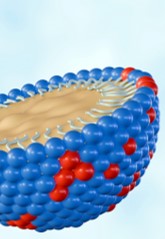Nanoparticles for drug delivery

Global interest in fucoidan-loaded nanoparticles for drug delivery continues to rise. In a recent investigation, researchers developed nanoparticles loaded with the cancer drug sorafenib and the polymers fucoidan and polyethyleneimine. Sorafenib is a breast cancer drug with low bioavailability and solubility in water. Nanocarriers can increase the solubility and permeability of the drug across membranes thereby improving breast cancer therapy.
Using artificial intelligence tools and machine learning methods, the study examined the effects of varying concentrations of both polymers to determine the optimal nanoparticles for in vitro investigations of anti-cancer activity. The results of the in vitro investigations showed controlled and sustained drug release in the cancer microenvironment. The optimised nanoparticles were compatible with red blood cells and were successfully retained at the cancer site. They demonstrated a significant inhibitory effect on breast cancer cell lines. Researchers noted that the ‘potent inhibitory effect of fucoidan against the breast cancer cells provided a synergistic effect to the sorafenib.’ The paper concluded that sorafenib-loaded nanoparticles hold huge promise in anti-cancer drug delivery.
The high purity Fucus vesiculosus fucoidan utilised in the study was manufactured by Marinova.
The full paper, ‘Development of fucoidan/polyethyleneimine based sorafenib-loaded self-assembled nanoparticles with machine learning and DoE-ANN implementation: Optimization, characterization, and in-vitro assessment for the anticancer drug delivery’, was published in the International Journal of Biological Macromolecules.